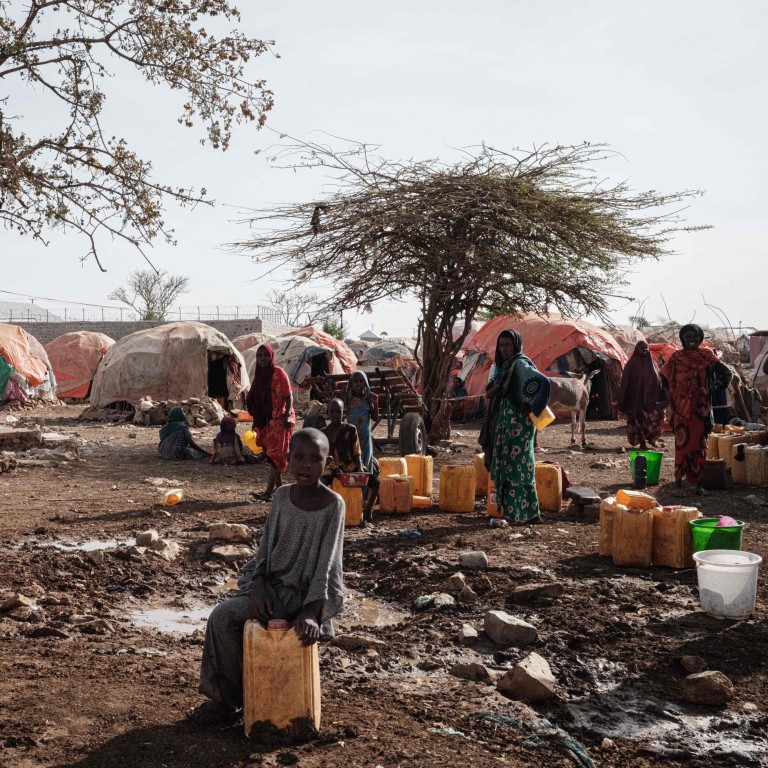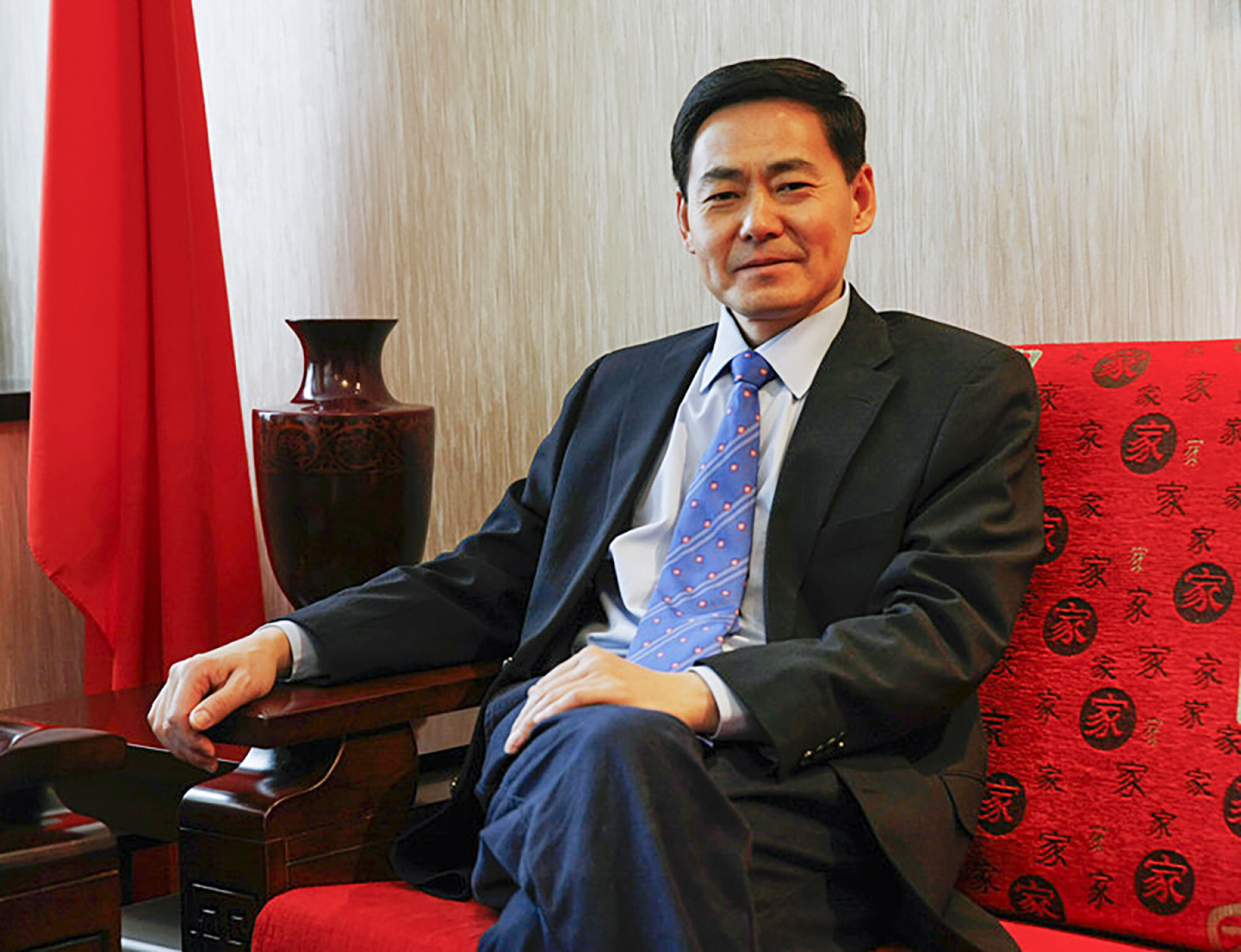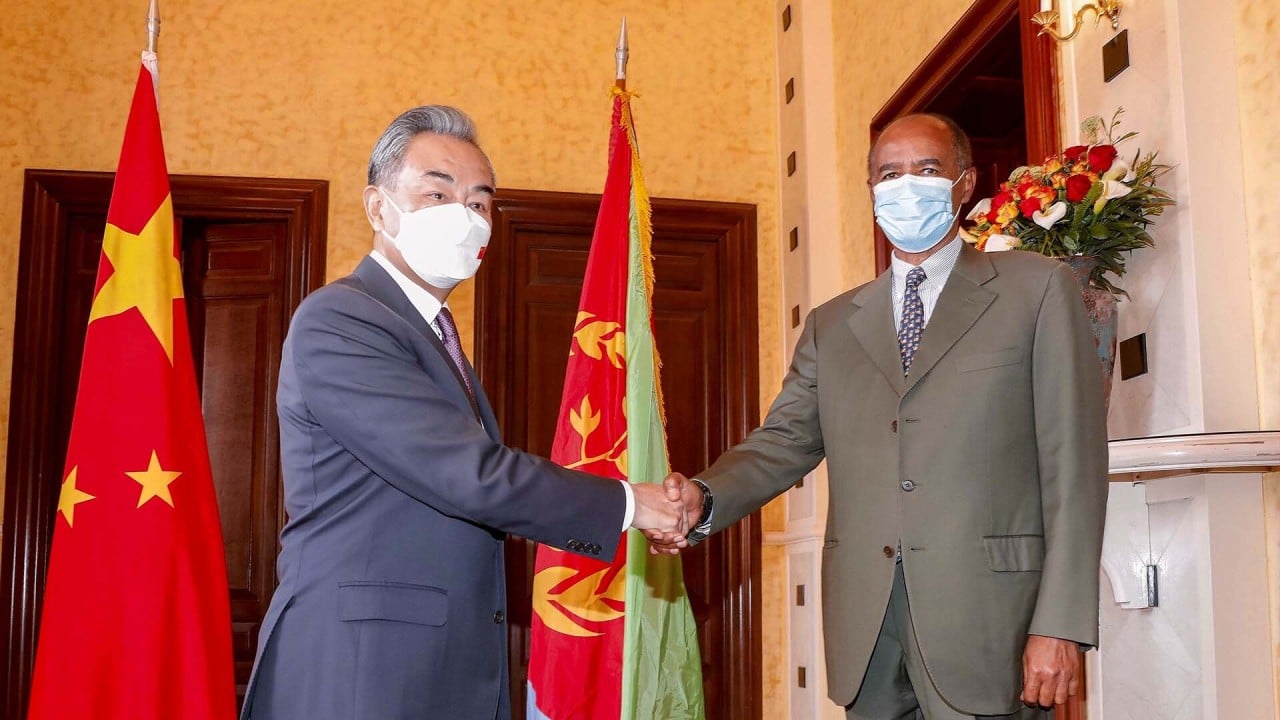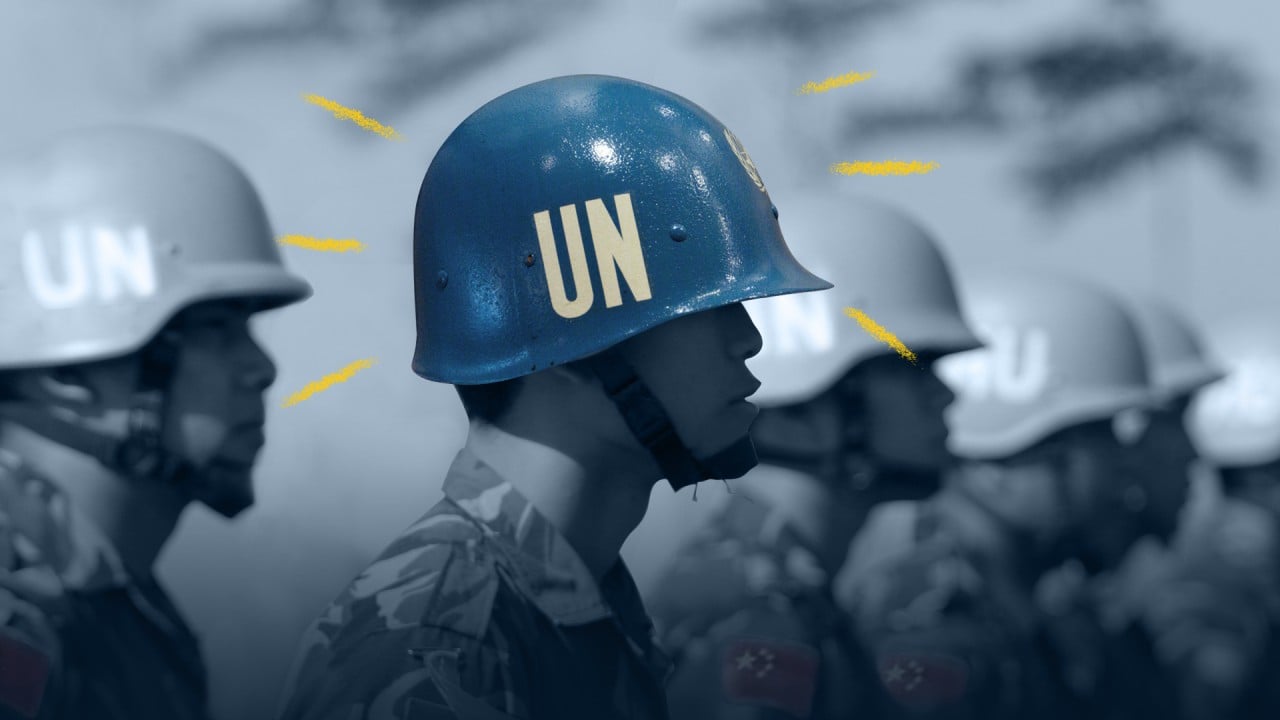
China’s Horn of Africa envoy advances Beijing’s push for peace in strategic and complex region
- Beijing’s newly created diplomatic post is set where civil wars, Islamist insurgencies and military coups have threatened investments
- China, which has its first overseas military base in Djibouti, has accused the US of meddling in the internal affairs of Horn of Africa nations
Xue is a veteran diplomat who had served as the ambassador to Papua New Guinea and in various countries in Africa, the Americas and Oceania, according to ministry spokesman Wang Wenbin.

During his visit to Africa in January, the Chinese foreign minister said China would “support regional countries in achieving lasting peace and security and embrace development and prosperity”, and that China would convene a conference on peace in the Horn of Africa. It is presumed it will address conflicts and instability in Ethiopia, Sudan and Somalia where Beijing fears its vast investments, made mostly under China’s Belt and Road Initiative, are threatened.
The Horn of Africa has complex historical, ideological, political, social, economic, humanitarian and environmental factors that have created tensions within and between states, according to Aaron Tesfaye, a professor of political science at William Paterson University, Wayne, New Jersey.
“The Chinese envoy, in attempting to mediate conflict in Ethiopia, will soon understand the solution will require several states and non-state actors in the region,” Tesfaye said.
“He will be facing what is called a ‘security complex’ where social and political solutions in one country can only be achieved in a climate of enhanced security and stability for all.”
The Horn – home to Djibouti, Eritrea, Ethiopia, Somalia, South Sudan and Sudan – has been the site of civil wars, Islamist insurgencies and military coups that have threatened investments in the region.
In Ethiopia, civil war erupted in November 2020 after Abiy Ahmed’s government accused the Tigray People’s Liberation Front (TPLF), a leftist political party, of attacking its military base to steal weapons.
And in Somalia, militancy by al-Shabab, a jihadist fundamentalist group based there, threatens regional security, particularly in Kenya where previous terrorist attacks have forced the nation to send troops into Somalia.
But China has previously criticised the US for what it called meddling in the internal affairs of Horn of Africa nations. Beijing contends that African countries are capable of solving their own problems without outside interference.
‘China’s now a big player’: why Beijing is doing more in Horn of Africa
As Beijing raised its stakes in the region, regional leaders Eritrea and Ethiopia pushed back on US demands relating to the conflicts, resulting in the US imposing sanctions on important political figures in Eritrea and Ethiopia and stopping Ethiopia taking part in the US market under its African Growth and Opportunity Act of 2000 (Agoa), Tesfaye said.
“This has opened an opportune time for China to appoint its envoy for the Horn of Africa. But the timing is also strategic. It is taking place when the US is ‘distracted’ by the emerging crisis in Ukraine and the intractable negotiations between Washington and Moscow ushering, perhaps, a new cold war,” Tesfaye said.
China funded a US$4.5 billion rail link to Djibouti in Ethiopia and is making inroads in Eritrea, which may start seeing Chinese money flow to develop its ports and rail networks.
But there is another reason Beijing is interested in intervening in the Horn of Africa. Tesfaye said China had financial exposure in Ethiopia, as well as in South Sudan, Kenya and its forward military naval base in Djibouti.
He said that by “making peace” in the region, “China’s plans turn political, economic and security to its national interest”.
According to Lina Benabdallah, a specialist in China-Africa relations at Wake Forest University in North Carolina, Beijing’s interests in the Horn are multiple: it imports a significant amount of oil from South Sudan; has a base in Djibouti; has a close economic and political partnership with Ethiopia; and has recently shown interest in playing a bigger role in Eritrea.
In November, Eritrea joined the Belt and Road Initiative, a multibillion-dollar programme that has helped build infrastructure megaprojects, including ports, power dams, railways and roads across Africa. The African nation has for years been cut off from the rest of the world. But it has a key asset: its access to the Red Sea, the Suez Canal and Europe, making it extremely important to the belt and road.
“The Horn is a region of growing and overlapping interest to China with a combination of security interests, access to the Indian Ocean, economic and political partnership, geostrategic calculations and so on,” Benabdallah said.
EU makes US$170 billion play to rival China in Africa
She said the new envoy would provide Beijing with one extra layer of coordination and communication with the various players in the Horn and would send strong signals that China was committed to promoting dialogue, peace and stability by dedicating a special diplomat to the region.
“There is … an opportunity for the relevant African diplomats to also take advantage of this and convey, leverage and negotiate their points of view with China via the special envoy,” Benabdallah said.
However, “from what we know about similar special envoys of China in the continent, we cannot expect that China will play a more ‘interventionist’ role just by mere fact of having a special envoy”. Instead, there was expected to be more dialogue and mediation, enhanced by the diplomat, Benabdallah said.



